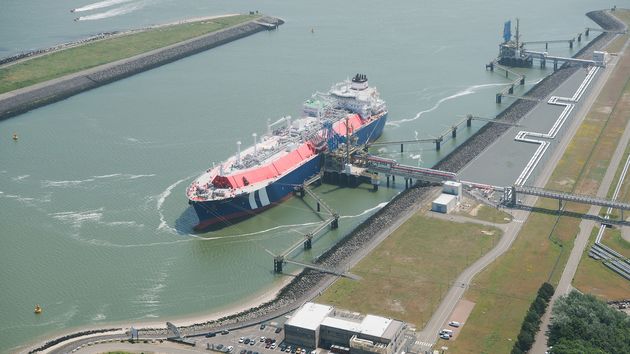LNG throughput in the Dutch port of Rotterdam rose 73.8 percent in the January-September period of this year on the back of high gas prices and as European countries look to reduce reliance on Russian gas.
The port, home to the Gate LNG import terminal, said that total LNG throughput reached 8.62 million tonnes in the nine-month period, compared to 4.96 million tonnes in the year before.
LNG throughput hit 5.41 million tonnes in the January-June period of this year, meaning that third-quarter throughput volumes reached about 3.21 million tonnes.
Incoming LNG volumes rose 89.9 percent in January-September to 8.50 million tonnes, while outgoing volumes dropped 75.3 percent to 120,000 tonnes, according to the Rotterdam port’s report.
“Much more LNG is supplied from the United States and other countries to replace Russian natural gas, which previously was piped to Northwestern Europe,” the port said.
Gate expansion
The Gate LNG terminal in the Rotterdam, owned by Gasunie and Vopak, recently received a permit to add the fourth tank and boost regasification capacity up to 20 Bcm per year.
Gate, owned by Gasunie and Vopak, has a capacity of 12 bcm or 8.8 mtpa of LNG, three LNG storage tanks with a capacity of 540,000 cbm, and three truck loading bays.
Following modifications, investments, and successful tests, Gate managed to add 4 bcm of capacity on an interruptible basis.
The LNG terminal operator also launched a non-binding open season to gauge market interest in an additional 4 Bcm per year of regasification capacity.
Besides Gate, Gasunie recently launched the first FSRU-based facility in the Netherlands with a capacity of 8 Bcm per year.
EemsEnergyTerminal, which consists of two chartered FSRUs, started delivering regasified LNG to the Dutch grid in mid-September.
Shell booked 4 bcm while Czech firm ČEZ took 3 bcm of the new terminal’s total capacity. France’s Engie secured the remaining 1 bcm of capacity.
Shell also has capacity rights at Gate, along with OMV, Glencore, and Uniper.

